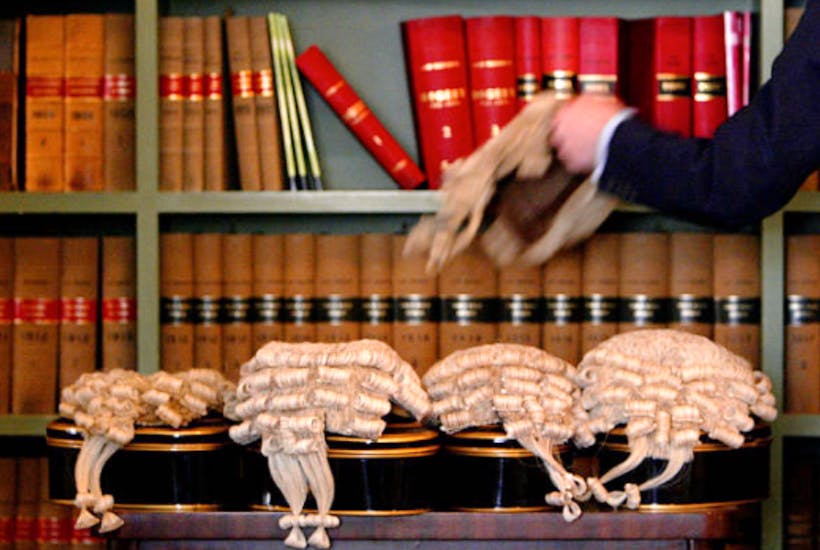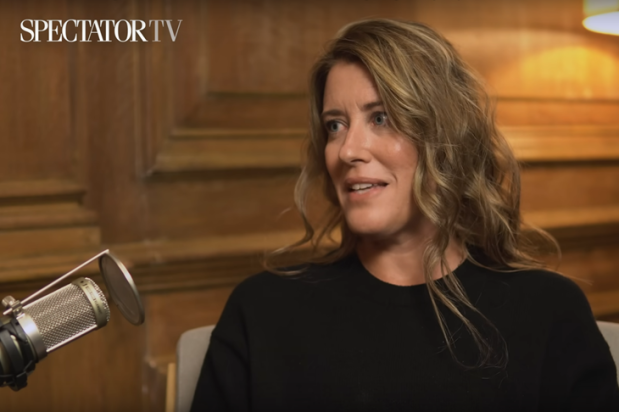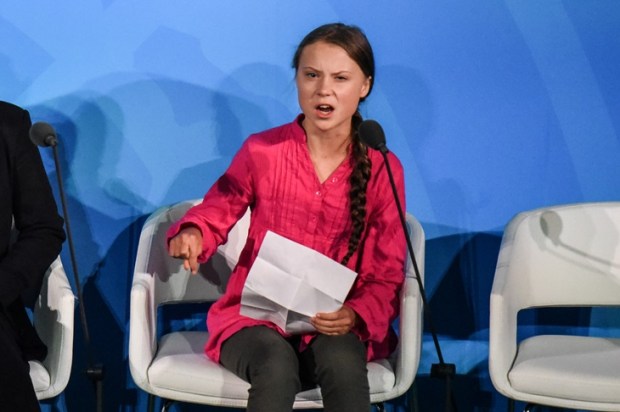Over a century ago the great American jurist James Bradley Thayer warned against handing social policy decision-making over to the lawyerly caste from which unelected top judges are chosen. Thayer said this ‘dwarves the political capacity of the people and deadens its sense of moral responsibility’. That was back in 1901. You can imagine what he would think today with the common law world’s top judges using entrenched rights protections (in just my native Canada alone) to judicialise and then to have the last word on euthanasia, on prisoner voting, on same-sex marriage, on prostitution, on how those claiming to be refugees must be dealt with, the list literally goes on and on. And this enervation of democracy and of democratic decision-making all flows from enumerating a list of amorphous moral entitlements in the language of rights and handing over their supervision to a committee of unelected ex-lawyers.
As you may have guessed I am a career-long opponent of this trend. I have long opposed any sort of Bill of Rights because the evidence is plain. If you buy a bill of rights you are simply buying the policy druthers of the lawyerly caste while you give that caste a power to gainsay the policy choices of the legislature and of you, the voter. That is not to say democracy gets everything right. Plainly, it does not. But I’m Churchillian about it. Democracy is the worst form of government … except for everything else. And that includes last word decision-making by top courts (committees of ex-lawyers who resolve their disagreements by voting -– 4 votes beat 3 –- so it’s just the size of the franchise in play).
Enter a fortnight ago Professor George Williams in the pages of The Australian. Williams has spent a career pushing for Australia to have a bill of rights of any sort. Though he has yet to succeed nationally, he has been very influential at the state level and indeed more or less drafted the Victorian statutory bill of rights (also a bad idea in my view). Anyway, Professor Williams’ latest gambit is to urge support for Senator Rex Patrick’s proposed constitutional amendment that would prevent any Australian government from ‘limiting freedom of expression’ and then throw things over to the courts to decide if a law were ‘reasonable and justifiable’.
This is a terrible idea, to be frank. And to be clear I say that as a huge proponent of free speech and as one of the very few conservative law professors in this country. Since arriving here in 2005 I have fought hard for the repeal of the s.18C hate speech laws. Williams has not. I have spent these last 15 months pointing out, and condemning, the fact of all the pandemic-related inroads on Australians’ freedoms and civil liberties, the worst in this country’s history. The usual suspects in the pro-bill of rights lobby have barely said a word about that, certainly nothing like I have. Indeed, I doubt there is a law professor with more robust pro-free speech credentials in Australia; in fact I’ll mud-wrestle for the title.
But there are right and wrong ways to try to achieve one’s goals and any sort of call for a truncated bill of rights-type provision is fools’ gold. My native Canada has one of the strongest entrenched bills of rights in the world. It was sold up in the Olympian heights of moral abstractions where everyone can say he or she is in favour of free speech and the like. But it has bite and effect down in the quagmire of day-to-day decision-making on issues like hate speech laws, campaign finance provisions and defamation regimes. Know what? There is more scope today, now, to speak your mind here in Australia without a bill of rights than there is in Canada. Williams is wrong our protections are the weakest because he only considers judicial protections, a usual failing of the lawyerly caste.
Worse, once you buy these things there is a ratchet-up effect. The judges keep expanding their reach, not least because top judges tend to think their own views ought to matter a lot. And there is no way back. I know. I was in law school in Canada when the Charter of Rights there was being sold to people. None of the promises about judicial restraint proved to be worth anything. It is the same everywhere. We can see that here in Australia even.
You see I do agree with one thing Professor Williams said. He observed that the so-called implied freedom of political communication that our High Court ‘discovered’ in 1992, and that it routinely uses to undertake a sort of ‘is this a reasonable, proportional law?’ type analysis, well it sits on very weak foundations. Frankly, those foundations are so implausible that I have come clean and just said the judges made it up (in part because they were unhappy with the failed 1988 s.128 referendum proposing a limited bill of rights not unlike Senator Patrick’s, rejected in every state by the way).
How many readers know that since that 1992 case the courts here require endless money to be spent in challenges against all sorts of democratically enacted laws, but that only a half-dozen odd times has any law been invalidated. (Ka’ching, for the lawyers, no?) That’s due to the obvious illegitimacy of the implied freedom. I might also note, for curiosity’s sake, that every single time since then that a law has in fact been struck down it has always been a Liberal law, never a Labor-enacted law.
Plus, why do we care in the least what seven top judges (often in a 4-3 case) happen to think of a democratically-enacted statute’s reasonableness or proportionality (after a few hundred paragraphs of Jesuitical analysis)? Do you think they have greater moral perspicacity than you do? Frankly, we have enough problems with our top judges expanding their ability to strike down laws as things are. Remember last year’s Love case? That was the one where a 4-3 High Court ‘discovered’ an inability of our Parliament to pass immigration laws to deport non-citizens, as long as the person could plausibly claim to be an Aborigine. Some of the majority based this on the concept of ‘otherness’, I kid you not.
If, as I do, you want more free speech in this country – and Lord knows this Morrison government has been awful on that front – then join me in fighting for s.18C’s repeal, for the end to the Covid-justified civil liberties despotism, and for politicians who will actually value freedom. Do not fall victim to the Sirens who regularly call for bill of rights type provisions, hoping you’ll take the bait.
James Allan is Garrick Professor of Law University of Queensland.
Got something to add? Join the discussion and comment below.
Get 10 issues for just $10
Subscribe to The Spectator Australia today for the next 10 magazine issues, plus full online access, for just $10.


























Comments
Don't miss out
Join the conversation with other Spectator Australia readers. Subscribe to leave a comment.
SUBSCRIBEAlready a subscriber? Log in